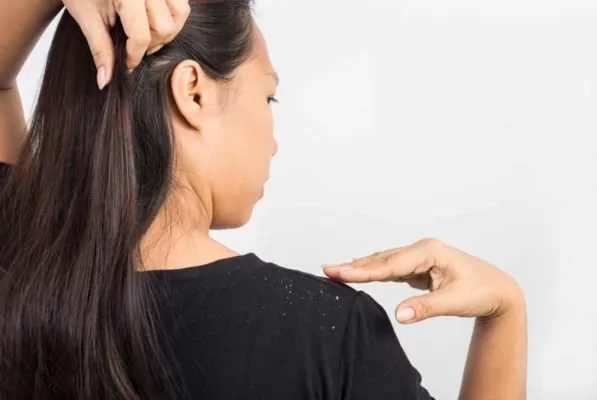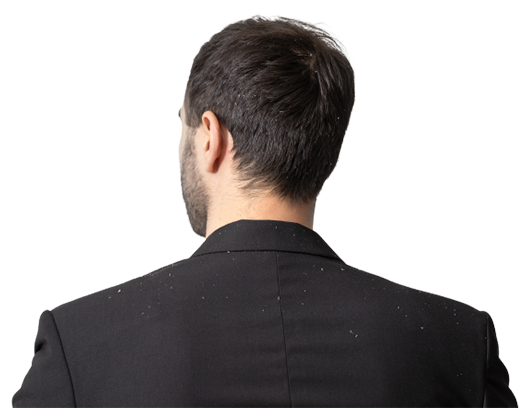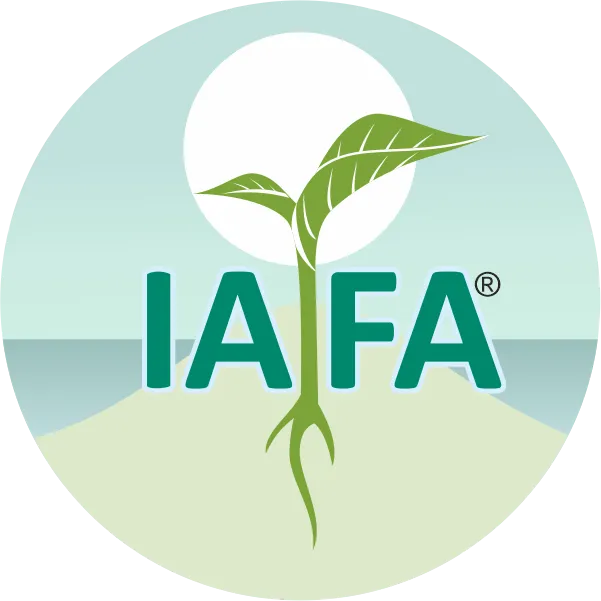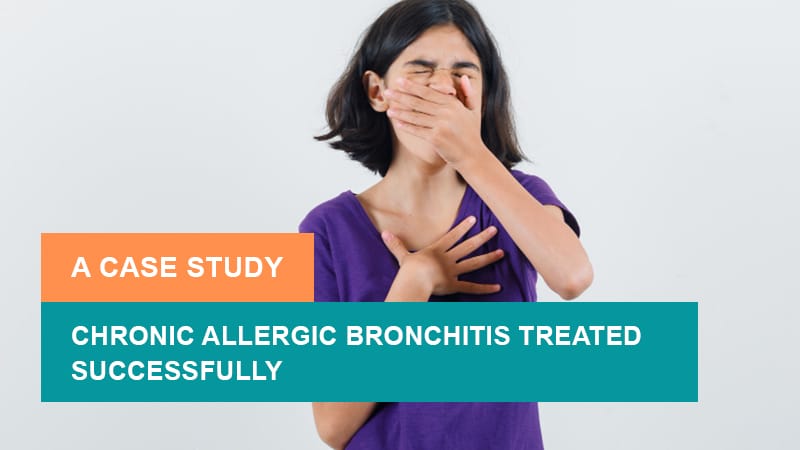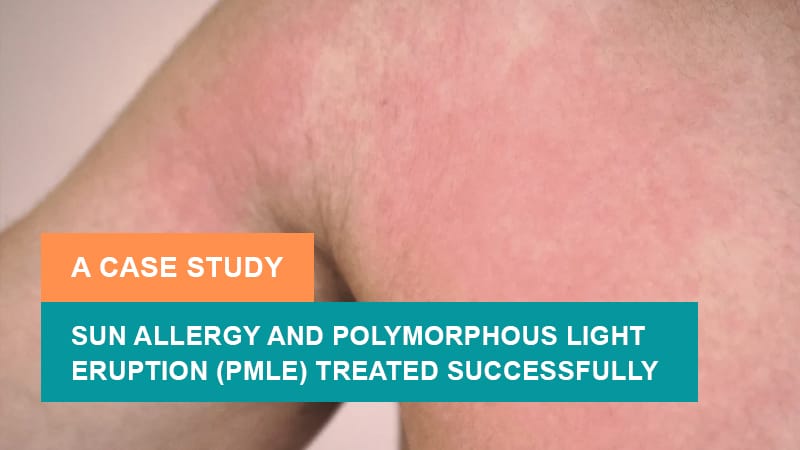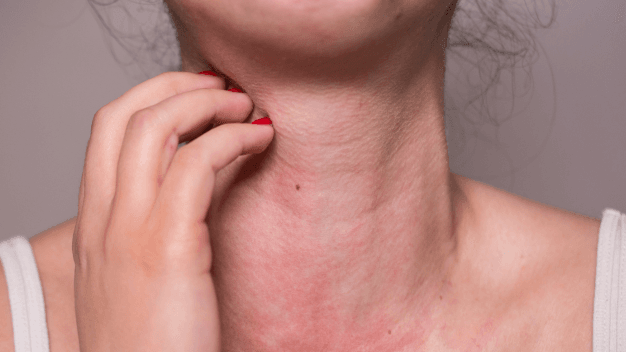On This Page
Introduction
Healthy, well-nourished hair enhances beauty and confidence, making us feel best. On the other hand, dull, damaged, or unhealthy hair can be frustrating and impact self-esteem.
Are you suffering from itching and flaking on your scalp? Do you notice white or yellowish flakes on your shoulders and hair? Does your scalp feel dry and irritated, or excessively oily?
Among the many hair concerns, dandruff stands out as a persistent and bothersome issue. It causes itching, flaking, and discomfort. Dandruff not only affects scalp health but also creates social embarrassment, making people self-conscious.
The common scalp disorder is characterized by excessive shedding of dead skin cells, often accompanied by irritation and itching. It is primarily linked to fungal overgrowth of Malassezia, scalp sensitivity, and excessive oil production, which trigger flaking and inflammation on the scalp.
Poor scalp hygiene, harsh hair products, and stress can worsen the condition of the dandruff. In Ayurvedic classical texts, dandruff is described as Darunak, which is mainly caused by an imbalance of Vata and Kapha Doshas in the body. Dryness (Rukshta), itching (Kandu), and flaking are attributed to Vata, while excessive oiliness (Snigdhta) and stickiness (Picchilita) result from Kapha dominance.
Ayurveda focuses on holistic healing with herbal remedies, scalp nourishment, and lifestyle, dietary corrections for long-term relief like use of various herbs like Neem, Bhringraj, etc which are infused with oil, detoxification therapy like Virechana (Purgative therapy) and Nasya (Nasal oil instillation therapy), etc.
Have you tried multiple shampoos but still struggle with dandruff? Are you looking for a natural and long-lasting solution to dandruff?
Here, We provide insights into dandruff from both modern and Ayurvedic perspectives. If you’re looking for a holistic and natural approach to treating dandruff, Dr, Sahil Gupta and the entire IAFA team will guide you completely with Ayurvedic treatments, and personalized dietary and lifestyle modifications to help you achieve a dandruff-free scalp permanently.
What is Dandruff?
The excessive shedding of dead skin cells, often leading to white flakes or yellowish flakes on the scalp, hair, and shoulders, is known as Dandruff. Dandruff is mainly caused by overgrowth of Malassezia fungus, excessive oil secretion, and scalp sensitivity.
Dandruff is usually accompanied by itching, irritation, and dryness in the scalp but can also be associated with excessive oil production in a few cases. Dandruff is not a contagious disease, but it can be persistent and socially embarrassing. Factors like poor diet, improper hair care, stress, etc. can worsen the condition.
Dandruff – As Per Ayurveda
In Ayurvedic classical texts, dandruff is referred to as Darunaka, a condition caused by an imbalance of Vata and Kapha Doshas. Some Acharya are considered minor skin diseases (Kshudra Roga) and some are considered under Kapala Gata Vyadhi.
When Vata Dosha is dominant then it contributes to dryness (Rukshta), roughness (Kharta), and flakiness of the scalp and leads to dry dandruff whereas Kapha Dosha contributes to excessive oiliness (Snigdhta), stickiness (Picchilta), and scalp irritation leads to wet dandruff. Pitta Dosha also contributes to the genesis of dandruff (Darunaka). This imbalance leads to itching, scalp scaling, and dryness.
Who Gets Affected by Dandruff?
Dandruff (Draunaka) can affect anyone, but certain individuals are more prone to have these diseases. Due to hormonal changes that influence oil production, teenagers and young adults are more prone to dandruff.
As excessive oil in the scalp creates an ideal environment for fungal growth, individuals with oily scalp are more likely to have dandruff. Along with this individuals with dry skin, and those with weakened immunity due to conditions like HIV, chronic illness, etc. are more affected by dandruff.
Irregular hair washing, i.e. poor scalp hygiene can lead to dirt accumulation and microbial growth in the scalp and may make individuals more prone to dandruff. Individuals with a history of eczema, or psoriasis are more affected by dandruff diseases.
How Common is Dandruff?
An extremely common scalp condition affecting people worldwide is dandruff and recent studies suggest that approximately 50% of the worldwide population experiences dandruff at some point in their lives.
A recent survey revealed that approximately 50 million people in the US suffer from Dandruff and approximately spend 300 million dollars on OTC treatment of dandruff. As per a survey, 70% of Indians suffer from dandruff.
It is more prevalent in individuals living in excessively dry climates or humid regions or due to hormonal fluctuation more prevalent in teenagers and young adults.
Types of Dandruff
Dandruff can be classified into different types based on scalp conditions, causes, and severity. Understanding specific types of dandruff is very important to choosing the right treatment for dandruff. The types of dandruff are as follows:-
1) Dry Scalp Dandruff
Dry scalp dandruff is the Vata Dominant Dandruff which is characterized by white, small, and powdery flakes that fall easily. Due to lack of moisture, use of harsh shampoo, excessive washing, nutritional deficiencies, and overuse of styling tools like dryers, this type of dandruff makes the individual scalp feel very dry, and rough and they also feel itching and irritation very commonly.
The dry scalp worsens with dry or cold weather. Staying hydrated, using nourishing Ayurvedic oils infused with Bhringraj, etc. consuming healthy fats, and practicing Abhyanga (massage) helps to balance Vata Dosha and ultimately in the treatment of dry scalp dandruff.
2) Oily Scalp Dandruff
Oily scalp dandruff is Kapha Dominant Dandruff which is characterized by greasy, yellowish flakes that stick to the scalp and hair. This type of dandruff occurs due to the accumulation of dead skin cells in the scalp due to excessive sebum or oil production, infrequent washing of hairs, consumption of Kapha aggravating food, hormonal imbalance, etc. due to which the scalp appears excessively oily and may have a foul odor with mild to severe itching (Kandu).
This type of dandruff may result in acne or forehead breakouts. Using kapha pacifying hair packs, regular scalp exfoliation, avoiding oily (Snigdha) food, etc. helps in the treatment of oily scalp dandruff.
3) Malassezia-Induced Dandruff (Fungal Dandruff)
This type of dandruff is characterized by white or yellow flakes with severe itching and irritation. Poor immune system function, high stress, overgrowth of Malassezia fungus, and use of harsh chemical-based shampoos result in this dandruff which may spread behind ears, eyebrows, or neck and may result in redness and inflammation on the scalp. Regular scalp cleansing, use of anti-fungal herbs, practicing Yoga, meditation, and use of rejuvenators to strengthen the immune system will help in treatment of this dandruff.
4) Severe Dandruff with Inflammation (Seborrheic Dermatitis)
This type of dandruff is characterized by thick, greasy, yellowish flakes with redness and inflammation which not only affects scalp but nose, eyebrows, back, chest, etc. with intense itching and in severe cases may lead to hair loss.
This seborrheic dandruff occurs genetically or due to excess oil production or stress or may occur due to harsh weather conditions and immune system dysfunction. Detoxification therapy, anti-fungal hair oils, and cold potency Ayurvedic herbs are very beneficial in this dandruff.
5) Psoriasis-Related Dandruff (Scalp Psoriasis)
The dandruff is associated with psoriasis in which silvery-white scales appear which are thick and dry. This dandruff is associated with a burning sensation, and severe itching and may extend beyond the scalp in the back of the neck, or ears. Stress, anxiety, and genetic factors play an important role in this dandruff, and detoxification therapies, Ayurvedic oils, Pitta- pacifying diet, Yoga, and meditation help in this dandruff.
Causes of Dandruff
- Overgrowth of yeast-like fungus i.e. Malassezia that feeds on scalp oils
- Excess Sebum Production
- Lack of moisture
- Poor Hygiene of the scalp
- Infrequent hair washing
- Stress
- Hormonal Imbalance
- Exposure to very Cold, dry weather
- Exposure to humid weather
- Reaction to hair products that contain harsh chemicals
- Overuse of hair styling products and tools
Causes of Dandruff – As Per Ayurveda
Factors that result in Vata and Kapha Dosha imbalance lead to dandruff (Darunaka). Causes (Nidana) are as follows:-
- Day sleeping (Diwa Swapana)
- Dryness (Rukshta) in the scalp
- Excessive oiliness (Snigdhta) due to increased Kapha
- Weak digestion (Manda Agni)
- Poor Scalp Hygiene
- Consumption of incompatible food (Viruddha Ahara)
- Stress and Anxiety (Chinta, Shoka, Krodha)
- Irregular food habits
- Roaming in vehicles like bikes and scooters (Atiyaan)
- Late night awakening (Ratri Jagarana)
Symptoms of Dandruff
- Flaky scalp with white or yellowish scales.
- Itching on the scalp that worsens with scratching.
- Irritation
- Dry or greasy patches on the scalp.
- Redness and inflammation in severe cases.
- Hair falls in chronic dandruff conditions.
Symptoms of Dandruff – As Per Ayurveda
- Persistent scalp itching (Kandu)
- Dry (Ruksha), rough (Khara), flaky scalp.
- Scalp scaling (Twak Sphutana) i.e. White or yellowish flakes on hair (Kesha) and shoulders.
- The scalp feels coarse and uneven (Khara Sparsha).
- If dandruff is associated with inflammation, then a burning sensation is present (Daha).
- Hair fall in severe conditions (Khalitya)
Ayurvedic Reference of Dandruff – Darunaka
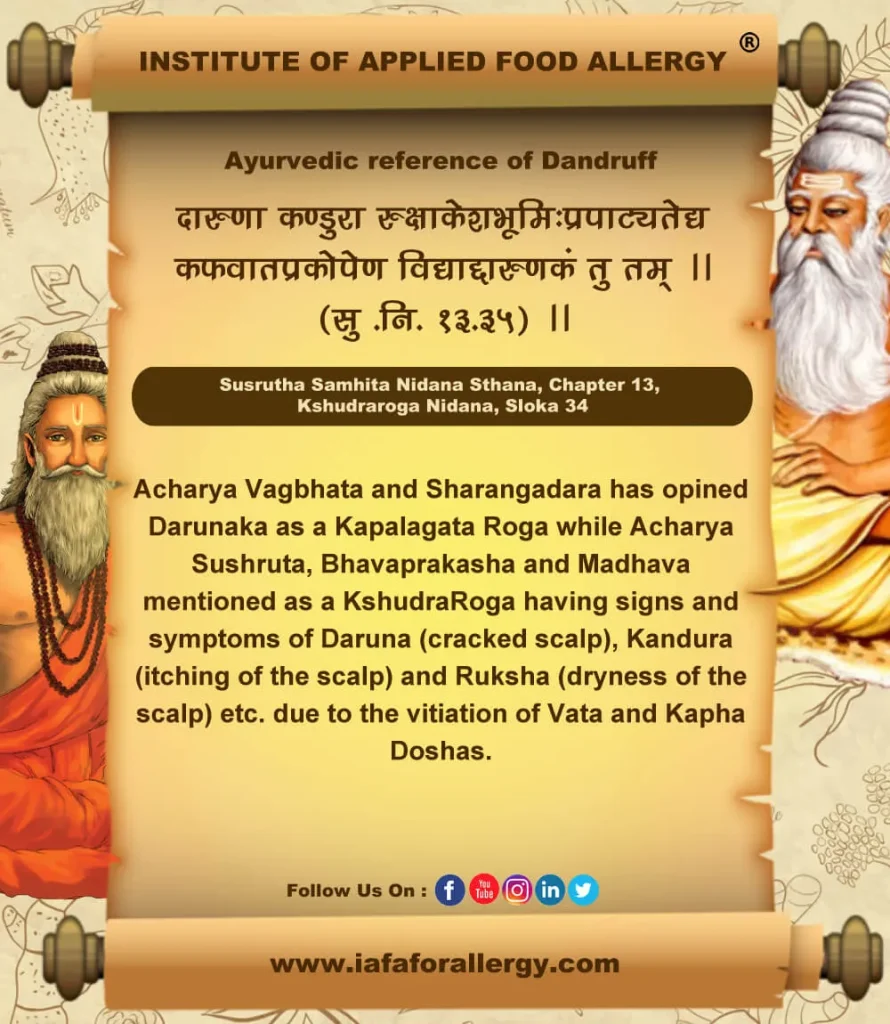
Diagnosis of Dandruff – As Per Ayurveda
Based on symptoms and lifestyle factors, the Ayurvedic diagnosis of dandruff involves a detailed assessment of Dosha imbalance. To determine Vata or Kapha dominance in an individual’s body constitution (Prakriti) is assessed. Symptoms like dryness (Rukshta), itching (Kandu), and oiliness (Snigdhta) are assessed to find out the vitiation of Dosha. Along with this, hair care practices, dietary habits, and stress levels are assessed. Darshana (Visual Examination) is done to inspect scalp conditions for flakes, redness, or inflammation.

“Dr. Gupta’s IAFA successfully address this condition and provides very safe and effective treatment for Dandruff. IAFA aspires to be the destination of choice for people seeking authentic Ayurveda healthcare. Institute of Applied Food Allergy® ensures that our health care system better meets the needs of all about your health”.
The Right Care. Right here.!!! Dr. Gupta’s IAFA for your health…….
– Dr. Sahil Gupta (B.A.M.S., M.H.A.)
Ayurvedic Allergy Specialist
CEO & Founder of IAFA®
At last, Easier Dandruff Management

Trusted by
More than 90,000 Patients

Convenient
at-Home Treatments

9.2 / 10
Customer Satisfaction Score
Dandruff Treatment in Ayurveda
Dandruff Treatment in Ayurveda mainly focuses on balancing the Dosha mainly Kapha, Vata and also by restoring the healthy scalp through Shodhana (purificatory), Shamana (palliative), dietary regulation (Pathya-Apathya), lifestyle modification, etc. Dandruff is a common and treatable disorder, but if left untreated requires treatment for a longer period.
IAFA Ayurveda provides effective purificatory and palliative therapies for Dandruff ayurvedic treatment. Dr. Gupta’s IAFA Ayurveda is the perfect destination for ayurvedic treatment of dandruff as well as other types of skin and scalp disorders. The Ayurvedic approach that is used to treat dandruff is as follows:-
Detoxification Therapy (Shodhana Therapy) for Dandruff
1) Purgation Therapy (Virechana) – Therapeutic purgation is done in dandruff patients with the help of various herbs like Aragvadha (Cassia fistula), Triphala, etc. to cleanse the body and eliminate excessive Pitta and Kapha from the system. When purgation therapy is done it indirectly benefits the scalp health by detoxifying the liver and by improving digestion as weak digestive fire (Manda Agni) is also one of the causes of the dandruff.
2) Nasal Therapy (Nasya) – Medicated oil or powder-like Anu Taila, Shadbindu Taila, etc. is administered through the nostril. Using Nasal therapy in dandruff balances Kapha Dosha and helps in reducing inflammation of the scalp along with itching and strengthening the hair follicles.
3) Medicated Buttermilk Therapy (Takra Dhara) – In this therapy, continuous medicated buttermilk (Takra) that is infused with cold potency (Sheet Virya) herbs is poured over the head for a certain period. It helps to eliminate one of the major triggers of dandruff i.e. stress and calms the mind. It further helps in improving itching and inflammation caused by dandruff.
4) Bloodletting Therapy (Rakta Mokshana) – With the use of various techniques like leech therapy (Jalaukavacharana), the removal of impure blood is done from the body in bloodletting therapy. This therapy provides immediate relief in localized lesions of psoriasis-related to dandruff and in severe cases of seborrheic dandruff by removing toxins from the bloodstream and reducing symptoms like itching, scaling, etc.
Herbs for dandruff
Herbs for dandruff treatment in ayurveda includes Bhringraj (Eclipta alba), Chironji seeds (Buchanania lanzan), Yashtimadhu root (Glycyrrhiza glabra), Kustha stem (Saussurea lappa), Urad seed (Vigna mungo), Amalaki (Phyllanthus emblica), Neem (Azadirachta indica), Guduchi (Tinospora cordifolia), Mango seed (Mangifera indica), Fenugreek (Trigonella foenum graecum), Manjistha (Rubia cordifolia), etc.
These herbs possess anti-fungal, anti-bacterial, anti-inflammatory, antioxidants, scalp nourishing, and Kapha and Vata Pacifying properties which reduce scaling, itching, control excessive oil production, and balance scalp pH, etc., and make them ideal drugs for treating dandruff.
Gem Therapy for Dandruff
Few stones are recommended to wear in dandruff as per Vedic Astrology. These stones can be worn after proper consultation with an astrologer as per your birth date, Zodiac sign, etc. to get only benefits.
As per astrology, Emerald (Panna), Yellow Sapphire (Pukhraj), and Blue Sapphire (Neelam) can be worn as per your natal chart if you are suffering from dandruff. These stones help in balancing Vata and Kapha, calm the mind, reduce stress, promote blood circulation, improve immunity, and scalp hydration, strengthen hair, etc.
Diet and Lifestyle Guidance (Pathya-Apathya) for Dandruff
According to Ayurveda, if your diet is correct then medicine is of no use because a good gut is considered as the basis of a healthy individual. So, by giving attention to our daily diet, we not only get relief from the diseases from which we suffer but also avoid the upcoming diseases. Below we mention some dietary and lifestyle guidelines that one can follow for Dandruff:-
What to Do (Pathya) in Dandruff?
- Fruits like Papaya, Amla, pomegranate, pears, etc. are included in a diet that helps in the hydration of the scalp and also helps to reduce inflammation.
- Vegetables like bottled gourd, carrots, spinach, etc are included in a diet that nourishes hair and detoxifies the body.
- Whole grains like brown rice, quinoa, oats, etc. are added to the diet that pacifies Pitta, improves digestion, etc.
- Healthy fats like coconut oil, flax seed, clarified butter (Ghee), sesame seed, etc must be added to a diet that reduces scalp dryness and nourishes hair follicles.
- Probiotics like buttermilk (Tkara), curd (Dadhi), etc should be included in a diet that maintains gut-skin balance.
- Oil massage (Abhyanga) should be done to improve blood circulation in the scalp and to prevent scalp dryness.
- Maintain hair hygiene
- Regular hair washing should be done to remove excessive oil, and dead skin cells from the scalp.
- Daily Yoga and Pranayama should be practiced to reduce stress.
- Adequate and proper sleep must be taken.
What to Avoid (Apathya) in Dandruff?
- Kapha increasing food like fried food or oily food or fats food should be avoided.
- Dairy products result in excess mucus and inflammation. So, overuse of full cream milk, cheese, etc. should be avoided.
- Processed food or refined sugar products like soft drinks, candies, etc. should be avoided.
- Caffeine and alcohol should be avoided.
- Spicy (Katu), and sour (Amla) food should be avoided.
- Chemical-based hair products should be avoided.
- Late night sleep, poor sleep, and irregular sleep should be avoided.
- Sedentary lifestyles reduce scalp nourishment and should be avoided.
- Stress should be avoided.
Yoga Asanas for Dandruff
Yoga Asanas for Dandruff includes Downward dog pose (Adho Mukha Svanasana), Camel pose (Ustrasana), Shoulder stand pose (Sarvangasana), Wind relieving pose (Pawanmuktasana), Rabbit pose (Shashanka Asana), Deep breathing technique (Pranayama) like alternate nostril breathing (Anulom Viloma), Bellow breath (Bhastrika Pranayama), Skull-shining breath (Kapal Bhati), Meditation, etc.
These Yogic Asanas improve blood circulation, relieve stress, enhance skin and hair health, improve metabolism, detoxification, etc., and also help in balancing Kapha Dosha, improve immunity, and help in relieving major triggers of dandruff.
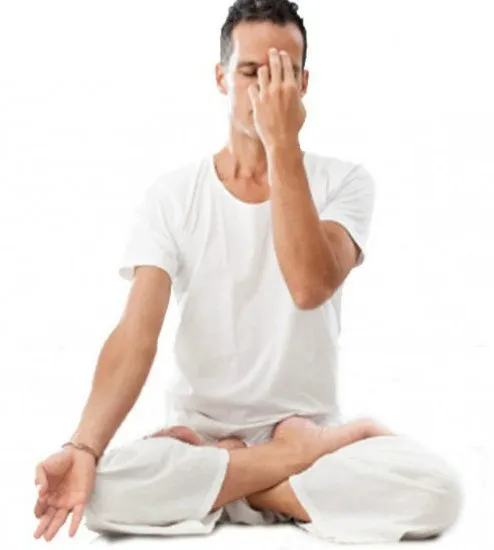
Frequently Asked Questions
Question: How Do You Remove Dandruff Naturally?
Answer: By using herbal hair masks infused with Neem, Amla, Fenugreek, etc. Regular oiling with oil infused with various Ayurvedic herbs like Bhringraj, Neem, etc., and Ayurvedic detox therapies like Virechana and Nasya help to remove dandruff naturally.
Question: How Do You Get Rid of Dandruff Naturally?
Answer: A combination of scalp massage with medicated oils, herbal rinses, probiotic-rich foods, stress management, dietary and lifestyle modification, etc. helps to eliminate dandruff naturally.
Question: Does Lemon Water Reduce Dandruff?
Answer: Yes, lemon water has antifungal properties so by balancing scalp pH, it reduces dandruff. Avoid excessive use of lemon as it may cause dryness.
Question: Which Oil is Best for Dandruff?
Answer: Various Ayurvedic oils that are infused with herbs like Neem, Bhringraj, Methika, etc., or Tea tree oil are highly effective against dandruff.
Question: Can Neem Water Remove Dandruff?
Answer: Yes, Neem consists of antifungal and antibacterial properties that help cleanse the scalp and reduce dandruff.
Question: Can Curd Remove Dandruff?
Answer: Yes, probiotics and lactic acid are present in curd, which reduce fungal growth, control dandruff, and help moisturize the scalp.
Question: Can Coconut Oil Remove Dandruff?
Answer: Coconut oil reduces flaking by moisturizing the scalp, and has antimicrobial properties, making it effective for mild dandruff.
Question: Is Dandruff a Fungus?
Answer: Dandruff is often caused by the fungus Malassezia, which feeds on scalp oils, leading to flaking and irritation.
References
- Madan, Poonam & Rathi, Bharat & Dhote, Sachin & Wairagade, Sonali & Swati, S & Gadgil, Swati & Sameer, Manohar & Joshi, (2021). An Ayurvedic approach in the Management of Darunak (Dandruff) -A Review. 8. 1315-1320.
- Pawar, Madhuri & Dharkar, Nilima & GB, Vargese & Wele, Asmita. (2021). Efficacy of Ayurvedic herbal gel in the management of Dandruff: A case study. International Journal of Ayurvedic Medicine. 12. 975-980. 10. 47552/ ijam. v12i4. 2293.
- Goud, Vaidya Prem & Pamnani, Dr. (2020). Ayurvedic Management of Darunak W.S.R. To Dandruff – A Review. International Research Journal of Ayurveda & Yoga. 03. 200- 215. 10. 47223/ IRJAY. 2020. 3707.
- Ranganathan S, Mukhopadhyay T. Dandruff: the most commercially exploited skin disease. Indian J Dermatol. 2010 Apr-Jun; 55 (2): 130- 4. Doi: 10. 4103/ 0019-5154. 62734. PMID: 20606879; PMCID: PMC- 2887514.
- Barak-Shinar D, Green LJ. Scalp Seborrheic Dermatitis and Dandruff Therapy Using a Herbal and Zinc Parathion– based Therapy of Shampoo and Scalp Lotion. J Clinical Aesthetic Dermatol. 2018 Jan; 11 (1): 26- 31. Epub 2018 Jan 1. PMID: 29410727; PMCID: PMC- 5788265.
- Satchell AC, Saurajen A, Bell C, Barnetson RS. Treatment of dandruff with 5% tea tree oil shampoo. J Am Academy Dermatol. 2002 Dec; 47 (6): 852- 5. Doi: 10. 1067/ mjd. 2002. 122734. PMID: 1245- 1368.
- Manuel F, Ranganathan S. A new postulate on two stages of dandruff: a clinical perspective. Int J Trichology. 2011 Jan; 3 (1): 3- 6. Doi: 10. 4103/ 0974- 7753. 82117. PMID: 21769228; PMCID: PMC- 312- 9121.
- Sewwandi, Samaranayaka & Karunaratne, Herath & Lokuge, Wataraka. (2023). Literature review on the efficacy of selected herbal oil from Vaidhyaka Sārasankshēpaya in the management of Dārunaka (dandruff). GSC Biological and Pharmaceutical Sciences. 24. 116- 121. 10. 30574/ gscbps. 2023. 24. 2. 0317.
- Nilimadharkar, & Dharkar, Nilima. (2024). A critical review of Ayurvedic management of dandruff-like skin disorders using a group of ten herbal drugs (Kandughna Gana). 9. 177- 183. 10. 2015/ IJIRMF/ 2023- 08032.
- Shyamali, B. (2020). Overview of Dandruff and its Remedies with Allopathy and Ayurvedic Therapy. International Journal for Research in Applied Science and Engineering Technology. 8. 37- 39. 10. 22214/ ijraset. 2020. 31968.
- Shyamali, B. (2020). Overview of Dandruff and its Remedies with Allopathy and Ayurvedic Therapy. International Journal for Research in Applied Science and Engineering Technology. 8. 37- 39. 10. 22214/ ijra- set. 2020. 31968.
Seek Expert Advice
If you are struggling with persistent dandruff, scalp itching, hair fall, or irritation due to dandruff it’s time to consult an expert for a deep-rooted and permanent Ayurvedic solution.
Dr. Sahil Gupta, a highly experienced Ayurvedic practitioner, specializes in treating dandruff and scalp disorders with a holistic and personalized approach.
Visit IAFA and feel the true sense of health through Ayurveda!!! For personalized consultation, book your appointment now!!!
Was this Page Helpful?
So, IAFA’s Root-Cause Treatment for Dandruff is Just 3 Steps Away!

01. Connect With Us
Share your history of illness or Book your appointment

02. Consult With Us
Dr. Gupta a certified Ayurvedic Allergist Consultant

03. Root Cause Treatment
Get an accurate diagnosis, medicines, diet & lifestyle change
Real Case Studies – Successfully Treated Patients
Real Case Studies of Successfully Treated Patients from All Around the World by IAFA Ayurveda®

9 Year Old Female Patient Recovered from Chronic Allergic Bronchitis – A Case Study
This case study presents a 9-year-old female patient who has successfully recovered…

12-Year-Old Child Recovered from Sun Allergy and Polymorphous Light Eruption (PMLE) – A Case Study
This is a case study of a 12-year-old child who has successfully…

40-Year-Old Female Patient Recovered from Dyshidrotic Eczema and Onychomycosis – A Case Study
This case study highlights the successful recovery of a 40-year-old female patient…

40-Year-Old Female Patient Recovered from Urticaria and Angioedema – A Case Study
This case study focuses on a 40-year-old female patient who has successfully…
Read More Articles

Mast Cell Diseases
Discover Ayurvedic treatment for Mast Cell Diseases, including types, causes, symptoms, and…

High Immunoglobulin-E (IgE) Levels
Discover Ayurvedic treatment for high Immunoglobulin-E (IgE) levels. Learn about the causes,…

Histamine Intolerance
Discover Ayurvedic treatment for histamine intolerance, its causes, symptoms, and natural treatment.…

